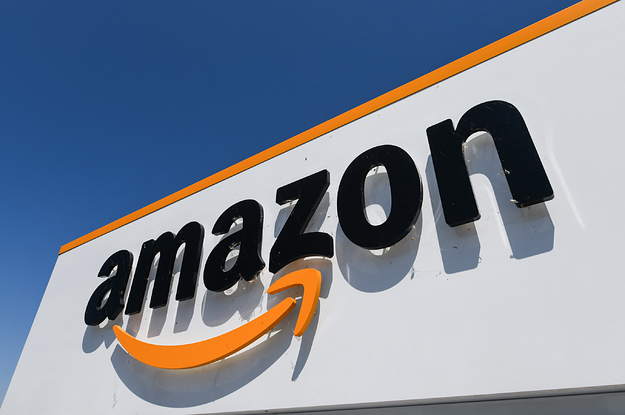Digital transformation plays an important role for companies of all sizes. During the transformation, companies and organizations digitize various processes and thereby achieve an improvement in workflows. As a result, companies benefit from improved, automated processes and save costs at the same time.
Many processes can be fully automated through digitization, which saves working time and thus also effort. Digital transformation is a permanent process in which constant changes in the company are integrated through digital processes. A company continuously improves and modernizes itself in which all processes are constantly on the checklist.
There are already studies that show how lucrative the use of blockchain technologies can be for a company. One example is Forrester’s TEI Total Economic Impact study. The study shows the benefits of blockchain and helps companies in the IT channel to generate blockchain projects for customers who are convinced of the technology. Of course, these studies also help with persuasion. With studies, companies from the IT channel can show why the use of blockchain makes sense and how quickly a blockchain project pays off.
The IT channel and the digital transformation


Blockchain is becoming more and more popular in companies and it is up to the specialist trade and the IT channel, in general, to ensure that companies are able to use blockchain technologies. To do this, companies need a suitable infrastructure, advice, and support in developing solutions. Many blockchain platforms are available as open-source, which further simplifies use and is a plus point for many companies.
If the IT channel recommends more blockchain projects and implements blockchain solutions in companies, the technology will prevail in the business world, which in turn benefits the channel as there are numerous new projects. Companies that rely on the blockchain must continue to invest in IT in the future. In addition to other blockchain projects, other business areas can also arise here, for example in the field of artificial intelligence and machine learning. There are constantly new versions, new solutions and security technologies that can be used meaningfully in connection with the blockchain.
IT companies support companies with the right hardware and software, but also with advice, training and support. The digital transformation is only successful if a company can fall back on extensive IT know-how. This is an opportunity for the IT channel, since in most cases external advice is necessary, even if the company has its own specialists. In a partnership, new approaches for new solutions are constantly emerging. The blockchain represents an ideal basis and complement here.
Blockchain technologies are certainly one of the mega-hyped in IT in recent years. Companies that are carrying out the digital transformation can hardly avoid dealing with blockchain technology. This can represent a great opportunity for the IT channel, as there is still a lot of catching up to do in terms of IT know-how in this area and companies have to understand the new technology so that they can use it. At this point, there is a great need for training and new approaches. In addition, a system house also shows that it is dealing with modern technologies. This also creates trust in other IT areas.
That is why digital transformation is important for companies
Through the digital transformation, companies can ensure that they are not left behind by competitors, also when it comes to the fast and effective flow of processes. As part of the transformation, companies are modernizing their IT infrastructure and integrating analog processes into the digital world. Examples of this are digital document management and archiving. Often, legal requirements for data protection can only be achieved with digital means.


In order for a modern company to be successful in the long term, the question is hardly whether a digital transformation should take place, but how far it should go. When it comes to transformation, it is of course not only sufficient to purchase new computers and other devices, but these must also be properly integrated into the network. This includes the conversion of analog processes to digital processes, employee training, optimization, troubleshooting and much more.
Since the digital transformation in a company does not end, but rather continues, new technologies naturally also play an important role. The blockchain has already been implemented in many networks and large companies or state organizations show where the path is going. Microsoft, IBM, Amazon and many others are already working with blockchain technologies.
This is the IT channel – system houses, distributors, resellers
The IT channel consists of various companies that support the implementation of IT products in companies. The distributors, resellers and IT consultants form the channel in which they help manufacturers of IT solutions to implement them in companies. These are not simple sales processes and middlemen, but consultants and developers who help improve processes in companies with digital technologies. The IT channel also includes system houses, computer dealers, online dealers, IT consulting companies and many more who make their own IT know-how available to end customers.
Companies in the IT channel often use certifications, partner programs and references to show how they have implemented IT projects in certain areas. This allows some IT companies to stand out from others in the channel and show in various specialist areas that they deliver added value that goes beyond the simple sale of hardware and software.
Managed service providers help with digital transformation
In the digital transformation, many companies are outsourcing more and more IT tasks to partners. In addition to administration and monitoring, this also includes the complete operation of entire IT infrastructures. Managed Service Providers (MSP) provide contractually agreed services for companies that can cover a broad spectrum. MSPs can operate entire infrastructures and ensure that hardware and software are always up to date and function as the client expects.


System houses in particular now also offer managed services. This can be the outsourced monitoring of IT infrastructures, but also the operation of infrastructure for customers. An MSP can provide complete IT infrastructures for companies, including data backup, archiving, virus protection, and development of applications for operations.
Small businesses also benefit from MSP, as the operating costs are easy to calculate. When operating their own data center, companies have to employ their own IT experts and bear the risk of a complete failure without being specialized. MSPs are specialized in operations and can react much more quickly to problems.
However, hiring an MSP does not mean that a company should no longer employ IT specialists. In practice, in-house IT specialists represent the link between MSP and internal users in the company. This minimizes friction losses and companies of all sizes benefit from the advantages of an MSP, while at the same time minimizing costs.
Blockchain and the digital transformation
Companies that are transforming digitally can hardly avoid dealing with blockchain technology. The blockchain is much more than bitcoin and financial transactions. It offers numerous areas of application in all industries and departments.
At which point in the digital transformation the blockchain plays a role, companies have to answer for themselves. In many cases, blockchain technology can bring improvements, especially in the movement of goods, that represent a quantum leap in logistics. Smart contracts are not only useful in logistics, intelligent contracts and digital, blockchain-based processes can also be useful in other areas.
This is how the IT channel benefits from the blockchain
Companies of all sizes benefit from the possibilities of the blockchain. Not only large corporations can use this technology for themselves. Appropriate know-how is necessary so that blockchain technologies can be used sensibly. This know-how is currently not available in most companies and most system houses are currently only marginally concerned with the blockchain.
This can be an opportunity for IT experts and the IT channel to deal with the topic of blockchain. In addition to process analyzes to determine where the blockchain can be helpful, hardware and software are of course necessary for the use of the blockchain. Alternatively, it can be used in the cloud. But the IT channel can also help here. Security technologies, managed services, training, and many other tasks that are tailor-made for the IT channel are part of the use of the blockchain. There are many opportunities here.
The IT channel can help advance blockchain technology and can be an advocate so that new solutions can be implemented. Most companies need a system in various areas that can store data transparently and unchangeably. The blockchain is ideal here, and retailers can help implement the blockchain in the company.
Solution providers benefit
Using the blockchain is not about introducing the technology for its own sake. It’s about providing solutions to a problem that the blockchain can help with. In addition to financial transactions, these are certainly smart contracts that bring enormous improvements in logistics.
Smart contracts are the key
The main focus when using the blockchain in companies is mostly on smart contracts. In supply chains, these computer programs in the blockchain can be used to completely automate complete processes. All processes are saved transparently and significantly accelerated. Smart contracts improve supply chains, accelerate processes, ensure more security and offer numerous areas of application. In addition to supply chains, smart contracts can also be useful in other areas of the company.
If an IT company can demonstrate the special advantages of using smart contracts to a customer, at least a test environment is secure in most cases. If the project is successful, smart contracts are the ideal way for the IT channel to get a foot in the door of many companies with the blockchain.
Smart contracts can automatically trigger actions, even outside of supply chains. Smart contracts can also be useful for maintenance and the triggering of service requests. If a system detects an error, it can automatically open a support order with the IT service provider using a smart contract. This saves working time and IT problems can be solved more quickly.
Early adopters benefit
IT companies dealing with the blockchain can become early adopters. If they enter into a partnership with the numerous blockchain developers and solution providers, there is an opportunity to convince one and then several customers of a solution. Once a technology has been successfully introduced, it can be multiplied and the IT channel and companies benefit from it.
Those who secure partnerships with important companies at an early stage can benefit earlier. Above all, technologies that deal with Ethereum or Hyperledger are leading. In addition to frameworks and tools, there are also solutions from developers who concentrate on this open-source software and rely on partnerships that help spread applications such as smart contracts in the business world.
Blockchain as a managed service
In many cases, blockchain technologies are not only used locally in the data center, but also in the cloud. This offers the advantage that partners and participants in a blockchain are easier to connect since the connection is made in a star shape from all participants to the blockchain service. When operating in their own data center, partners must first connect to the respective company network. That means effort and of course, also risks network security.
Blockchain-as-a-Service is an approach that managed service providers can use to help companies get onto the blockchain faster and more easily. But partners from Microsoft and Amazon can also offer such services with Azure and AWS. Various blockchain technologies that build on the market leaders in this area (Ethereum and Hyperledger) have long been available in the two platforms.
Google Cloud Computing, Oracle and IBM also offer blockchain technologies on their platforms, which are waiting to be used by IT companies in the business world.
Blockchain offers more security
A blockchain is a decentralized, encrypted database. When it comes to security, blockchains are worlds ahead of conventional databases. This makes it easy for the IT channel to introduce blockchain technologies in companies that rely on this decentralized and secure approach.
With the functions of the blockchain, documents can also be verified and transparently tracked. In environments with digital document management and archiving, the blockchain can provide a significant improvement in security.
Blockchain technologies are therefore part of the solution for secure data centers. At the same time, blockchain applications naturally also require security infrastructures. It must always be guaranteed that a blockchain is not compromised and successfully attacked. In addition, there is the connection of further participants to the blockchain. Firewalls and network infrastructures are required here with which participants can establish a connection to a blockchain from outside.
Conclusion
Blockchain technologies are not only an opportunity for companies but also an opportunity for the IT channel to spread the technology in the business world and to support customers in using the new technology. The possibility of multiplication results in follow-up business and with blockchain technologies that have already been introduced, it is highly likely that further projects will follow. In any case, it is worthwhile for the channel to deal with the topic of blockchain, because this trend will play an increasingly important role in IT in the future.

